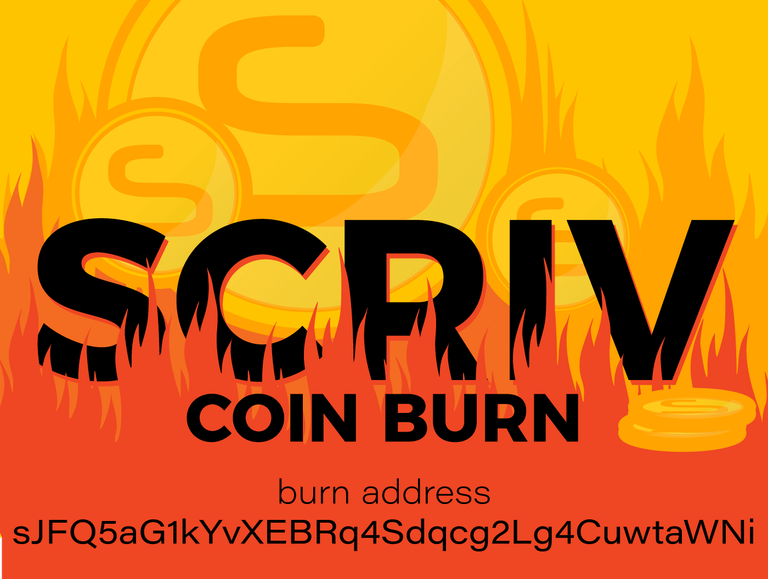In mid of July, we announced several events for the end of the month (don't hesitate to track our calendar at CoinDar and CoinMarketCal ;).
The 30th of July 2018 was set as the date for the first SCRIV coin burn, but... we decided to make this procedure today.
There are several ways to do a coin burn. The question is: what is the most cryptographically proven and safe? (you can learn about coin burn here or here).
Now, we are happy to announce, that 4 million SCRIV have been successfully burned. This is over 2.6% of the total supply and now over 11% of the circulating supply is permanently unavailable!

The coins were burned by sending them to sJFQ5aG1kYvXEBRq4Sdqcg2Lg4CuwtaWNi.
You can track the balance on the SCRIV block explorer: https://explorer.scriv.network/address/sJFQ5aG1kYvXEBRq4Sdqcg2Lg4CuwtaWNi
2 test transactions were sent to this address before the coin burn procedure commit.
The explanation part follows now >>>
Simplistically, every wallet address is created according to the following algorithm: The hash is generated from a private address -> from the hash, the checksum is generated -> the result is encoded into a public key by the base58 algorithm. Read this article to understand how Bitcoin address are generated in detail: https://en.bitcoin.it/wiki/Technical_background_of_version_1_Bitcoin_addressesThe hash of a burn-wallet is 00000 00000 00000 00000 00000. The public key, that matches to this hash is not existent. You can check the hash by using any base58 decoder, like https://incoherency.co.uk/base58/.
)